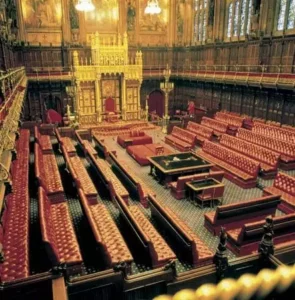Parliamentary sovereignty

Parliamentary sovereignty is a constitutional and political principle of some parliamentary democracies according to which sovereignty belongs to Parliament which can take any decision it deems necessary. This principle, also sometimes called parliamentary supremacy , sometimes clashes with popular sovereignty or constitutionalism.
Parliamentary sovereignty is an idea mainly developed in England in the 17th century.
Eugène Pierre translates well in his Treaty of political law the common opinion in the 19th century: “the Chamber is bound neither by the text of the laws, nor by the decisions of universal suffrage. It is sovereign, with absolute and unreserved sovereignty . »
In British law
Parliamentary sovereignty is the most fundamental principle of the Constitution of the United Kingdom, so much so that the Constitution is sometimes summarized (by oversimplification) in one sentence: "What the Queen-in-her-Parliament enacts is law" . It means in particular:
- that there is no restriction or limitation on the right of the Parliament of the United Kingdom to pass and repeal any law as it wishes;
- that the judiciary cannot therefore repeal any law or any section of any law adopted by Parliament: the constitutional review can only be carried out for information purposes and cannot bind Parliament;
- that the executive power cannot therefore exercise a veto over the decisions of Parliament;
- and that Parliament cannot coerce members of subsequent legislatures: In short, Parliament is free to override decisions it has made previously .
Parliament can temporarily restrict its own sovereignty, but remains free to return to itself any element of sovereignty that it has delegated to other bodies. Thus, by making the United Kingdom a Member State of the European Economic Community in 1973 and then of the European Union in 1993, the British Parliament accepted to a certain extent the exercise of a supranational community right. The sovereignty of the British Parliament was however preserved by the fact that the Parliament remained free to revoke this delegation of powers, which it did with the withdrawal of the United Kingdom from the European Union in 2020. Similarly, devolution of powers in the Scottish Parliament, the Welsh Parliament and thede jure to the constitutional principle of sovereignty of the Parliament of the United Kingdom, because the latter theoretically retains the power to revoke this devolution (even if such a revocation would be politically unthinkable) .
In Belgium
Over the past forty years, a change has been observed in Belgium in the relationship between the judiciary and parliament. The dogma of the absolute inviolability of parliamentary assemblies has been undermined. The latter must now be accountable not only to voters but also to judges .
In Canadian law
Despite the coming into force of the Canadian Charter of Rights and Freedoms, parliamentary sovereignty remains at the heart of Canadian constitutional law.
Contenido relacionado
Actio libera in causa
Brfxxccxxmnpcccclllmmnprxvclmnckssqlbb11116
Social contract